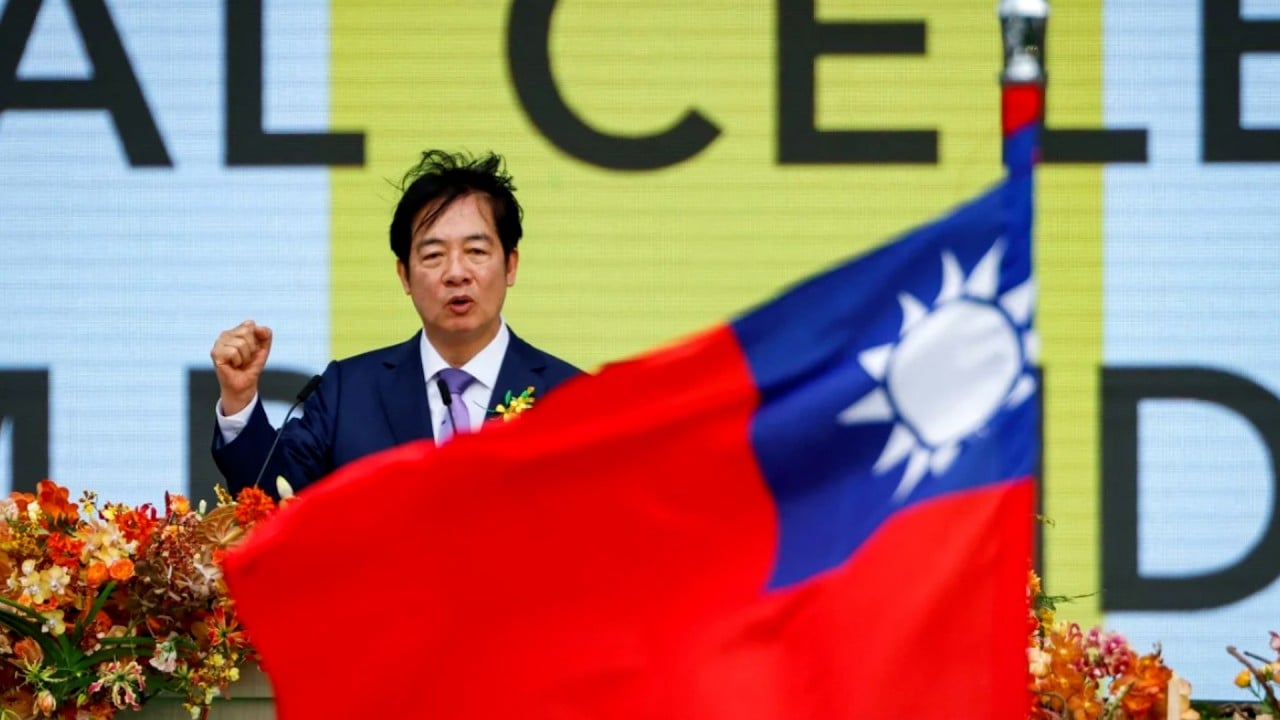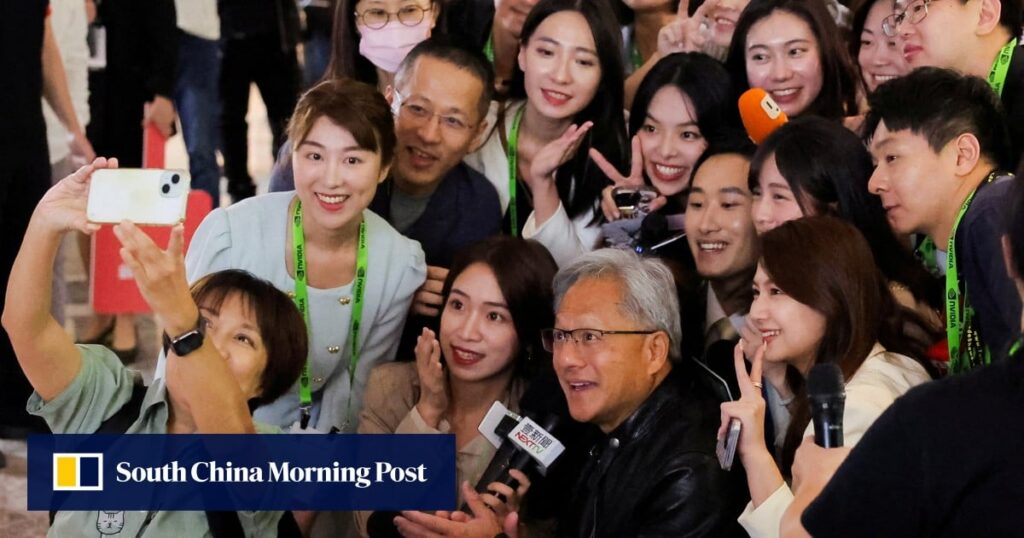Technology industry insiders say Taiwan has the parts and facilities to manufacture such devices, and there is a global recognition that the supply chain will meet a wide range of consumer demand.
“AI is still booming, and AI PC makers are preparing,” said James Hsieh, assistant vice president at Akbel Polytech, which makes power supplies and has a 300-watt model that he believes will best handle the increased power for AI calculations such as GPT commands.
“You have to do research for your marketing, otherwise you become stale,” he said.
Taiwan's trade data already reflects the growing global popularity of AI-optimized home appliances.
Taipei's finance ministry said exports in the first four months of this year were up 10.6% compared with the same period in 2023. In percentage terms, the highest increase was in the high-tech hardware sector.
The ministry had reported that monthly exports fell for most of last year due to weaker demand for personal computers and smartphones after the pandemic.
The island has been shipping high-tech equipment around the world for half a century and is a manufacturing hub for parts designed in California's Silicon Valley.
In an April 30 research note, ING said Taiwan's first-quarter GDP growth was “better than expected,” rising 6.51% year-on-year and “largely driven by net exports.”
Supplies start with processors, including low-power neural processing units (NPUs) for AI. Taiwan Semiconductor Manufacturing Co. (TSMC), the world's largest contract chipmaker and home to many cutting-edge technologies, is taking orders for processors designed by large U.S. companies such as Intel.
“Semiconductor makers like TSMC are undoubtedly key suppliers of advanced chips used in AI computers,” said Sanesha Huang, an analyst at Taipei-based market research firm TrendForce.
Developers of cooling systems, power supplies, connectors and chassis for large computers said this week they are considering how to adapt them for AI-optimized PCs.
AcBel's Hsieh explained that more power would be needed, the NPU would need to be cooled, memory would need to be added, and the chassis would likely need to be redesigned to accommodate the internal changes.

05:06
William Lai becomes Taiwan's new leader, vowing to maintain status quo in the Taiwan Strait
William Lai becomes Taiwan's new leader, vowing to maintain status quo in the Taiwan Strait
“The production of hardware components such as motherboards, graphics cards, and memory modules [Taiwan’s strengths]and also has extensive capabilities in electronics assembly and manufacturing,” Huang said.
AI PC frenzy was rampant at the annual Taipei Computex trade show this month, with buyers lining up outside the gates and large crowds flocking to watch product demos by Taiwanese PC developers Acer, Asustek and MSI, which said their devices would hit the mass market between late June and the end of the year.
Demos at the show included a PC key that launches GPT programs with a single press, software that creates photo-like images based on your commands, and some machines even added augmented reality capabilities and boasted battery life of up to 18 hours.
A June 2 speech by Nvidia CEO Jensen Huang, who is Taiwanese, and a subsequent frenzy of signing sessions on Tuesday bolstered credibility for the technology and contributed to a turnout that many of the 1,500 exhibitors said was “bigger than usual.” Show organizers had expected 50,000 visitors.
Huang said Nvidia, the designer of graphics processing units, will use the architecture to build an “AI factory” for breakthroughs in generative AI.
Microsoft, which recently released “Copilot+” software for AI PCs, expects to sell 50 million units by May 2025. To that end, Taiwanese suppliers will “drive scale,” said Mario Morales, vice president of the semiconductor research group at U.S.-based market analysis firm IDC.
At this point, I have high confidence in the topic of AI. [PC] Demand will grow over the next few years. Jerry Kao, Acer COO
Acer, the world's fifth-largest PC vendor by market share, plans to launch its Swift 14 AI laptop with Copilot+ this month or next, said Chief Operating Officer Jerry Kao.
“Questions are being asked about the future of personal computers post-COVID,” Kao said at Computex. “Right now, when it comes to the topic of AI, I'm convinced that it's going to be in high demand for the next few years.”
Guang Xing's 70-person staff is researching ways to cool AI processors in big computers for data centers, said manager Gary Hsu. “AI needs refrigerators,” he joked at the Computex show, one of dozens run by small, decades-old Taiwanese hardware companies.
Angela Huang, an analyst at Taipei-based Market Intelligence Consulting Institute, said battery cells are mainly supplied by Japanese manufacturers and are the only component that is hard to come by for Taiwan's supply chain.
Taiwan's technology industry continues to face pressure from geopolitical changes that began in 2018 when former U.S. President Donald Trump launched a trade war with China.
U.S. law bars Taiwanese companies that sell sensitive tech equipment, such as advanced chips, to U.S. customers from making similar sales in mainland China, and industry giants such as TSMC are shifting their factories out of Taiwan out of concern that a dispute with mainland China will make it harder for overseas customers to get those components.
“We're very sensitive to these geopolitical issues,” said Albert Liu, CEO of Neron, a company that designs power-saving AI chips. “It's even harder than AI.”



